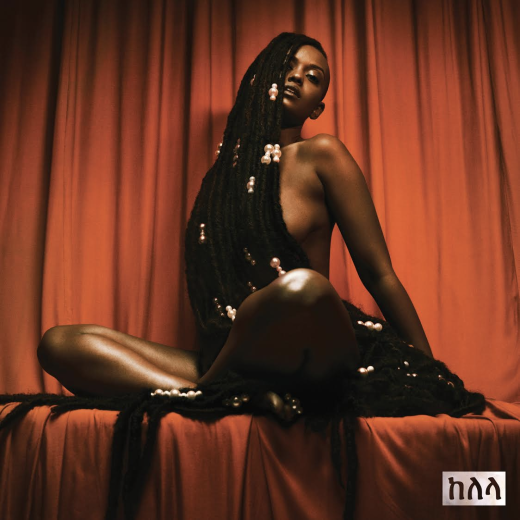Sexual freedom, power, and intelligence have long been attributes that women have been denied, unless they expect and accept a heinous label to come with the package. If a woman is sexually confident, she is only granted said trait within social realms at the risk of being labelled: wh*re. This is an even more troubling reality if such a person identifies as queer. If she’s powerful? She is labelled as controlling. Intelligent? Arrogant. Long has the patriarchy overshadowed and demeaned women and non-binary individuals, categorising them in order to maintain dominance. Kelela challenges all of this on her debut LP Take Me Apart, an alluring piece of the hip hop/R&B chain that glimmers under incandescent streetlights and subdues the would-be-attacker, shattering the bones of intolerance and bigotry.
Look, here’s the thing, we’ve had artists like this before. Female rap artists of colour like Niki Minaj and Cardi B have hung men out to dry with their global singles, pummelling forward with lyrics and beats crafted to give a surge of confidence and assurance. The only issues that stem from this are as follows: Firstly, such tracks are often shaped and cut as to fit into strictly heteronormative roles with there rarely being room for LGBTQ+ interpretation within the lyrics. Secondly, these surges are just that; brief moments of confidence too short for men to fear but just long enough for women to revel in their message. Of course there isn’t anything wrong in achieving that and as a matter of fact, the significance of their mainstream acclaim cannot and should not be disregarded for a moment, but true impact lies within storytelling. In order to transform that fleeting inferno of confidence that stems from moments of vigour and rage into an everlasting ember, you must display and therefore own the many facets of disappointment and fear that reside within us after we have been hurt. Take Me Apart is an album that does just this, guiding us through the mirror maze faced by women, particularly those in minorities and members of the LGBTQ+ community, as their reflection is warped and transformed before their very eyes.
Starting off with the break-up of a relationship, Kelela immediately cements the underlying tone of the album. ‘Frontline’ uses it’s lush, swerving beats to bring forth a confident stance in the initiation of the break-up. She jabs with lines “Why are you testing me” and “I’m not the one”, relishing in the control that she possess, but there is a hidden tenderness to it all. At the end of the track her vocals drift off into a soft croon of “I couldn’t wait for you”, illustrating that there is more to this break-up than direct anger and dismissal. These soft vocals lead directly into ‘Waitin’ which opens with the blatant admission of weakness – “saw you there and it fucked me up”. This admission is submerged in the same rhythmic thumps as before, intermittently allowing the crescendos of emotions to tailgate the corresponding sonic elements. The rise of the relationship is brief, and we see it collapse in ‘Enough’, a sporadic beat-lain driver of echoed vocals that demonstrates Kelela’s strength. Throughout all of this one is aware of the non-gendered presentation of her partner, giving a universality to what she is saying and allowing the power of that not just to reside within its confidence, but within sexual freedom that exists without fear of retribution.
‘LMK’ is where Kelela begins pushing into the territory of sensuality. The warped, icy synths create the authentically shallow and hedonistic atmosphere as she sings nonchalantly about a hook-up, effortlessly mentioning that “no one’s trying to settle down” and that regardless of the outcome, “it ain’t that deep”. Vocally this track reflects the quality that reigns throughout, but the key to such impressive vocals lies within her control. Kelela is never unsure of how strong to sing or how to fade off, and she never belts unnecessarily merely to add focus. This is a hallmark of a promising artist, one that brings forth thoughts of Sampha’s Process.
During the later and closing tracks ‘Blue Light’, ‘Onanon’ and ‘Altadena’ we are submerged in the closing of the relationship, however, within the space of the three tracks we are taken through a mature graduation of acceptance. From the infatuated desire to help our lovers to the fight that ended it all, we are given a fantastically accurate and intelligent portrayal of the relationship. In the final track, Kelela wishes her counterpart well, having accepted all that has happened. She ensures that they know despite the fact it didn’t work out, there is a place for them somewhere; she’s just not the one.
Take Me Apart is a fantastic demonstration of modern hip hop/R&B, amalgamating suave synths with stuttering beats to create an infectious sound, but it’s true value lies within the empowerment it strives for and succeeds in bringing. Kelela weaves confidence into every fibre of the album, creating an atmosphere of acceptance that doesn’t nurture anyone back to health, but rather shows that there is a tremendous power that does not leave us, even amid the bleakest of personal times. She doesn’t forget that in order to make a real impact, that bleakness can be embraced and triumphed over. In doing so she has made an ideal that is more realistic, more attainable, so that perhaps that wave of confidence will last for more than three minutes on the dancefloor. Mitchell Goudie






